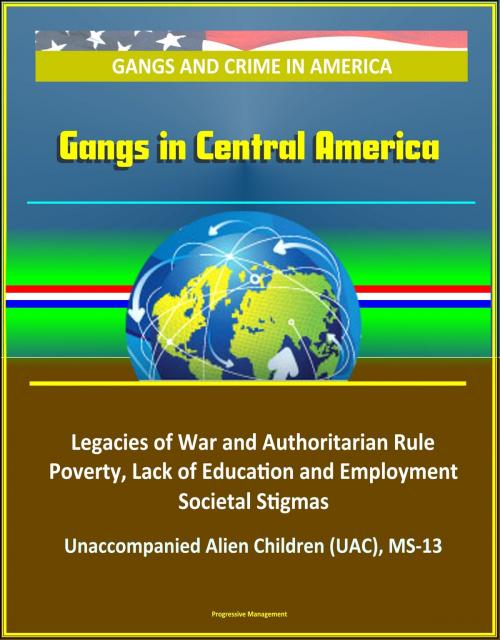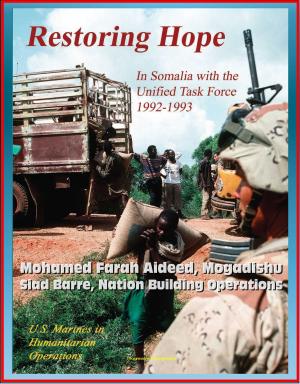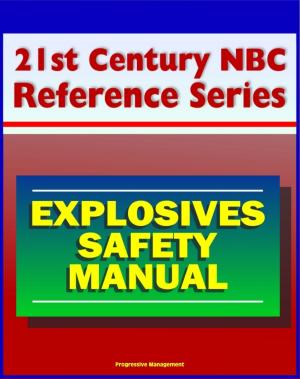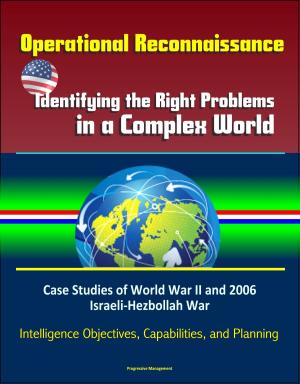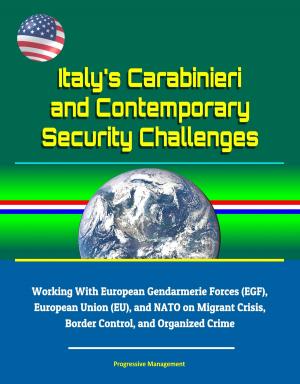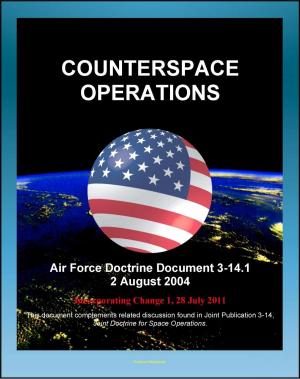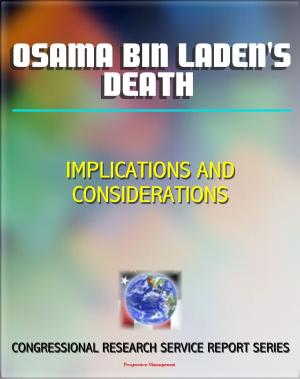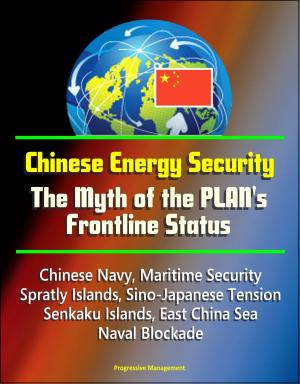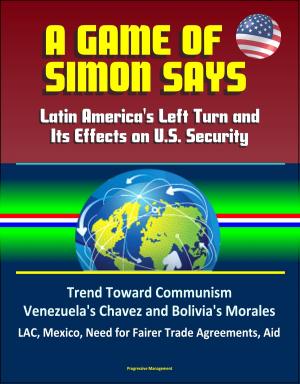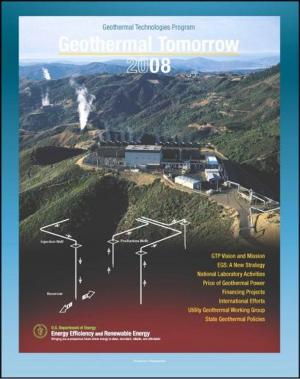Gangs and Crime in America: Gangs in Central America - Legacies of War and Authoritarian Rule, Poverty, Lack of Education and Employment, Societal Stigmas, Unaccompanied Alien Children (UAC), MS-13
Nonfiction, History, Americas, Central America, Social & Cultural Studies, True Crime| Author: | Progressive Management | ISBN: | 9781370377947 |
| Publisher: | Progressive Management | Publication: | April 21, 2017 |
| Imprint: | Smashwords Edition | Language: | English |
| Author: | Progressive Management |
| ISBN: | 9781370377947 |
| Publisher: | Progressive Management |
| Publication: | April 21, 2017 |
| Imprint: | Smashwords Edition |
| Language: | English |
This excellent report has been professionally converted for accurate flowing-text e-book format reproduction. The Mara Salvatrucha (MS-13) and its main rival, the "18th Street" gang, continue to undermine citizen security and subvert government authority in parts of Central America. Gang-related violence has been particularly acute in El Salvador, Honduras, and urban areas in Guatemala, contributing to some of the highest homicide rates in the world. Congress has maintained an interest in the effects of gang-related crime and violence on governance, citizen security, and investment in Central America. Congress has examined the role that gang-related violence has played in fueling mixed migration flows, which have included asylum seekers, by families and unaccompanied alien children (UAC) to the United States. Since FY2008, Congress has appropriated funding for anti-gang efforts in Central America. Central American governments have struggled to address the gang problem. From 2012 to 2014, the government of El Salvador facilitated a historic—and risky—truce involving the country's largest gangs. The truce contributed to a temporary reduction in homicides but strengthened the gangs. Since taking office in June 2014, President Salvador Sanchez Ceren has adopted repression-oriented anti-gang policies similar those implemented in the mid-2000s, including relying on the military to support anti-gang efforts. El Salvador's attorney general is investigating allegations of extrajudicial killings committed by police engaged in anti-gang efforts. Successive Honduran governments have generally relied on suppression-oriented policies toward the gangs as well, with some funding provided in recent years to support community-level prevention programs. The Guatemalan government has generally relied on periodic law-enforcement operations to round up suspected gang members.
This report describes the gang problem in Central America, discusses country approaches to deal with the gangs, and analyzes U.S. policy with respect to gangs in Central America. Congressional oversight may focus on the efficacy of anti-gang efforts in Central America; the interaction between U.S. domestic and international anti-gang policies, and the potential impact of U.S. sanctions on law-enforcement efforts.
Scope of the Gang Problem in Central America * Defining Gangs * Transnational Gangs in Central America * Gang Activities in Central America * Factors Exacerbating the Gang Problem in Central America * Legacies of War and Authoritarian Rule: Arms and Violence * Poverty and a Lack of Educational and Employment Opportunities * Societal Stigmas * Prisons in Need of Reform * U.S. Removals (Deportations) to Central America and the Gang Problem * Country Anti-gang Efforts * Mano Dura (Heavy-Handed) Anti-gang Policies * El Salvador's 2012 Gang Truce and Dissolution * Military Involvement in Public Security and Human Rights * Approaches in Other Central American Countries * Prospects for Country Prevention and Rehabilitation Efforts * U.S. Policy * Congressional Interest and Appropriations * Evolution of U.S. International Anti-gang Efforts * State Department * U.S. Agency for International Development * Department of Justice * Department of Homeland Security * U.S. Treasury Department * Possible Questions for Oversight
This excellent report has been professionally converted for accurate flowing-text e-book format reproduction. The Mara Salvatrucha (MS-13) and its main rival, the "18th Street" gang, continue to undermine citizen security and subvert government authority in parts of Central America. Gang-related violence has been particularly acute in El Salvador, Honduras, and urban areas in Guatemala, contributing to some of the highest homicide rates in the world. Congress has maintained an interest in the effects of gang-related crime and violence on governance, citizen security, and investment in Central America. Congress has examined the role that gang-related violence has played in fueling mixed migration flows, which have included asylum seekers, by families and unaccompanied alien children (UAC) to the United States. Since FY2008, Congress has appropriated funding for anti-gang efforts in Central America. Central American governments have struggled to address the gang problem. From 2012 to 2014, the government of El Salvador facilitated a historic—and risky—truce involving the country's largest gangs. The truce contributed to a temporary reduction in homicides but strengthened the gangs. Since taking office in June 2014, President Salvador Sanchez Ceren has adopted repression-oriented anti-gang policies similar those implemented in the mid-2000s, including relying on the military to support anti-gang efforts. El Salvador's attorney general is investigating allegations of extrajudicial killings committed by police engaged in anti-gang efforts. Successive Honduran governments have generally relied on suppression-oriented policies toward the gangs as well, with some funding provided in recent years to support community-level prevention programs. The Guatemalan government has generally relied on periodic law-enforcement operations to round up suspected gang members.
This report describes the gang problem in Central America, discusses country approaches to deal with the gangs, and analyzes U.S. policy with respect to gangs in Central America. Congressional oversight may focus on the efficacy of anti-gang efforts in Central America; the interaction between U.S. domestic and international anti-gang policies, and the potential impact of U.S. sanctions on law-enforcement efforts.
Scope of the Gang Problem in Central America * Defining Gangs * Transnational Gangs in Central America * Gang Activities in Central America * Factors Exacerbating the Gang Problem in Central America * Legacies of War and Authoritarian Rule: Arms and Violence * Poverty and a Lack of Educational and Employment Opportunities * Societal Stigmas * Prisons in Need of Reform * U.S. Removals (Deportations) to Central America and the Gang Problem * Country Anti-gang Efforts * Mano Dura (Heavy-Handed) Anti-gang Policies * El Salvador's 2012 Gang Truce and Dissolution * Military Involvement in Public Security and Human Rights * Approaches in Other Central American Countries * Prospects for Country Prevention and Rehabilitation Efforts * U.S. Policy * Congressional Interest and Appropriations * Evolution of U.S. International Anti-gang Efforts * State Department * U.S. Agency for International Development * Department of Justice * Department of Homeland Security * U.S. Treasury Department * Possible Questions for Oversight
